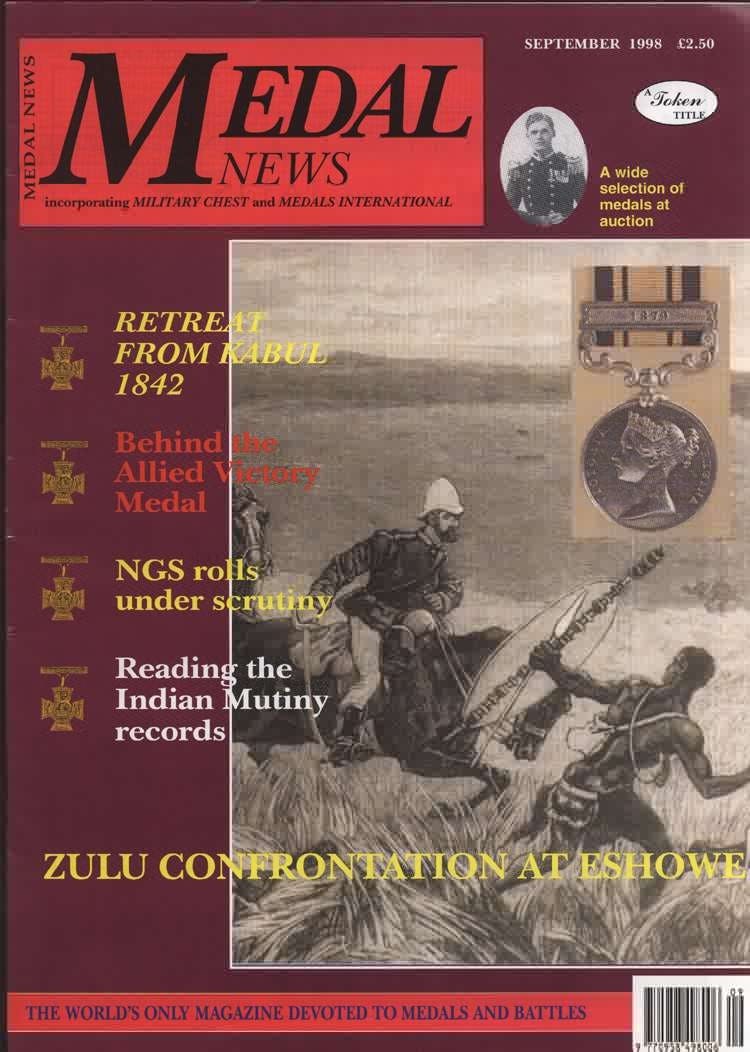From the Editor's desk - NO LONGER AVAILABLE
Volume 36, Number 8, September 1998
AS a collector reading auction catalogues and dealers' sales lists, I find a word that continually occurs to describe particular medals or groups is: "important". This word tends to be used for medals or groups which have been awarded to people who have held positions of responsibility, or who are themselves famous, which is not the same as saying that the medal or group of medals is important in itself. I believe that the word "important" should be used to describe the medals, not the recipient: if a group, or a single medal, is nuInislnatically unique, or very rare, it merits being described as "important" to the medal- collecting community. Obviously, all named medals are unique to the original recipient, but there is a difference between this and the rarity or scarceness of the award of a particular medal, or the combination of a number of medals and clasps. "Important", as a word to describe items for sale, could certainly do with a rest. Another aspect of auction and sales catalogues that can be extremely upsetting to potential clients (I.e. collectors) is the accuracy of the data recorded there. I have noticed some deterioration in the proof-reading of catalogues recently, and I confess to finding it annoying. I know (from bitter experience when I started to edit the OMRS Journal four years ago) that getting the proof-reading right matters deeply to readers. There are, though, categories of inaccuracy. A simple reversion, such as "teh" for "the", is irritating, but not significant. One recent auction catalogue, however, contained several mistakes that should have been spotted. For example, one lot was headed: "Three to . . . sth Dragoon Guards", but the medals were apparently named to the sth Lancers. Another lot was described as: "Pair to . . . Yorkshire and Lancashire Regilnent". I think that members of the old 65th/84th Foot would be surprised that their designation York and Lancaster had been substituted by the respective counties of these cities. At the risk of being hoist by my own petard (I take full responsibility for similar errors in MEDAL NEWS), my point is that, if collectors can see obvious mistakes like this, how can they rely on the accuracy of anything else in the catalogue, e.g. naming details, which can be crucial in giving collectors important information about the "correctness" of a medal? Can all those who produce catalogues or sales lists please ensure that data is correct in these vital areas? Distance buying (as was pointed out on this page last month) is enough of a lottery already.
Order Back Issue
You can order this item as a back issue, simply click the button below to add it to your shopping basket.

